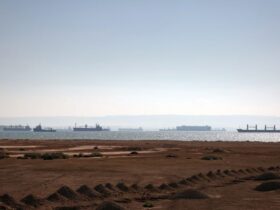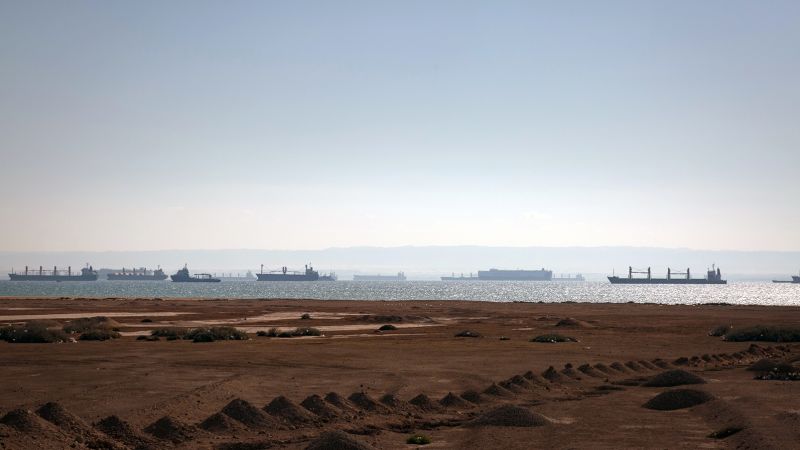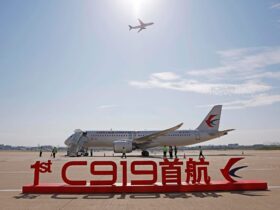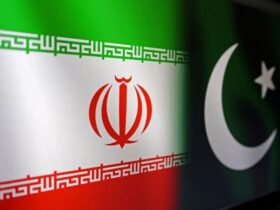The Red Sea, a critical artery for global trade and a major energy transit route, is in the grips of instability. Attacks by Houthi rebels on commercial shipping jeopardize maritime security and challenge China’s global ambitions.
Why the Red Sea Matters to China ?
China’s economic ambitions are closely intertwined with the Red Sea. Its massive Belt and Road Initiative (BRI) relies on stable shipping lanes for access to markets in Europe and Africa. The disruption caused by the Red Sea crisis directly threatens this crucial trade route. Furthermore, China has invested heavily in ports and infrastructure along the Red Sea, underscoring the region’s importance to its economic expansion..
China also relies on the Red Sea for its growing energy needs. As a major importer of Middle Eastern oil, any disruption to Red Sea shipping lanes could have ripple effects on China’s economy.
Houthi Rebels and the Regional Power Struggle

To understand the Red Sea crisis, it’s vital to recognize the broader context. The Houthi rebels, a Yemeni rebel group backed by Iran, have escalated their attacks in a regional power struggle against Saudi Arabia. China, with its desire to balance relations in the Middle East, finds itself caught in the crossfire.
China’s Balancing Act: Trade vs. Security
China’s deepening economic ties with the Middle East have prompted a shift towards a more engaged foreign policy in the region. However, its long-standing principle of non-interference creates a dilemma. The Red Sea conflict forces China to balance its economic interests with the complexities of regional security.
Taking a direct role in conflict resolution poses risks. It could alienate China’s Middle Eastern partners and deviate from its traditionally cautious approach to foreign policy.
Can China be a Peace Broker in the Red Sea?
Despite its measured response so far, consisting primarily of diplomatic calls for de-escalation, China holds potential as a peace broker in the Red Sea. Its unique economic leverage with both Iran and Saudi Arabia could provide diplomatic influence few other nations possess.
Yet, China’s reluctance to engage more decisively highlights the limits of its influence in areas of the world burdened by complex geopolitics. While Beijing seeks greater global influence, its preference for soft power and quiet diplomacy may prove insufficient in the face of the Red Sea conflict.
Conclusion
How China reacts to the Red Sea crisis is a test case for its global ambitions. Successful mediation could solidify its image as a responsible global power dedicated to peace and stability. However, the choice to remain on the sidelines could reveal the limitations of its influence and underscore the challenges in translating economic strength into tangible diplomatic power. The world is watching to see how China will navigate this test of its evolving foreign policy and its aspirations for global leadership.
FAQ: The Red Sea Crisis and China’s Global Role
Q: Why is the Red Sea so important strategically?
A: The Red Sea is a vital chokepoint for global trade. It connects the Mediterranean Sea to the Indian Ocean through the Suez Canal, providing a crucial shortcut for trade between Europe and Asia. Additionally, it’s a major route for oil shipments from the Middle East. Any disruption here creates ripple effects throughout the global economy.
Q: How does the Houthi rebel activity destabilize the region?
A: The Houthi rebels, backed by Iran, have been escalating attacks on commercial shipping and Saudi Arabian infrastructure in the Red Sea. This raises security risks for vital shipping lanes, increases insurance costs, and creates an overall climate of instability that deters investment and trade.
Q: How does the Red Sea crisis impact China’s Belt and Road Initiative (BRI)?
A: The BRI is China’s massive global infrastructure project, and the Red Sea is a crucial component. China has invested heavily in ports and development along the Red Sea coastline. The conflict directly threatens the security and viability of these projects and could jeopardize trade routes essential to the BRI’s success.
Q: Is China likely to play a bigger role in mediating this conflict?
A: It’s possible, but comes with challenges. China has unique economic ties with both Saudi Arabia and Iran, which could give it leverage as a mediator. However, China’s traditional adherence to a non-interference policy and preference for quiet diplomacy might limit its willingness to take an assertive leadership role.
Q: What are the long-term implications of the Red Sea crisis for China’s global ambitions?
A: The way China responds to this crisis will signal its intentions on the global stage. If China can successfully leverage its influence to bring stability to the Red Sea, it reinforces its image as a responsible global leader. Conversely, if China remains largely inactive, it could raise questions about the efficacy of its influence and its commitment to playing a proactive role in resolving international conflicts.
Share Your Thoughts: Leave a Comment Below
click on ” Unicorn Blogger “





























Leave a Reply